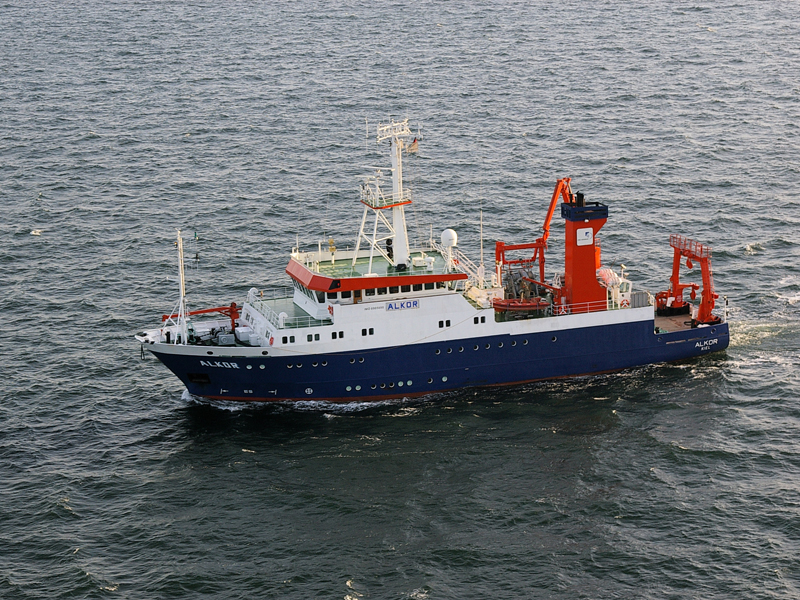ALKOR AL553
- Area:
- Baltic Sea
- Time:
-
15.04.2021 - 24.04.2021
- Institution:
- GEOMAR
- Chief scientist:
- Jan Dierking
The Baltic Sea is comparatively speaking species poor, yet it provides important ecosystem services to the Baltic nations. At the same time, it is one of the regional seas most affected by the combination of global and regional anthropogenic changes, including warming, spread of anoxic zones and projected freshening of surface waters, and resulting biological shifts. With the long-term monitoring cruise program, we aim to extend a unique integrative long-term data and sample series of the pelagic systems of the central Baltic Sea that has been collected annually since the year 1986, on the same station grid, and with consistent methodology. This series has been a powerful tool in the assessment of the biological responses of the pelagic systems of the central Baltic Sea to environmental fluctuations, human exploitation, and rapid directional changes related to global change and anthropogenic drivers. The cruises will continue the collection of primary data (e.g., hydrography, fish and jellyfish community composition including monitoring for non-indigenous species, single fish data) and of biological samples for downstream laboratory analyses (e.g., phyto- and zooplankton community composition, cod samples for fecundity, diet, food web tracer, parasite load and molecular analyses; other fish species and food web samples). The resulting time series spanning the years 1986–2025 will provide the foundation for ongoing and future projects addressing past, current, and future biological changes in the pelagic ecosystems of the Baltic Sea in response to multiple changing drivers over time, towards an improved understanding of biodiversity changes and their functional consequences under global and regional change.



